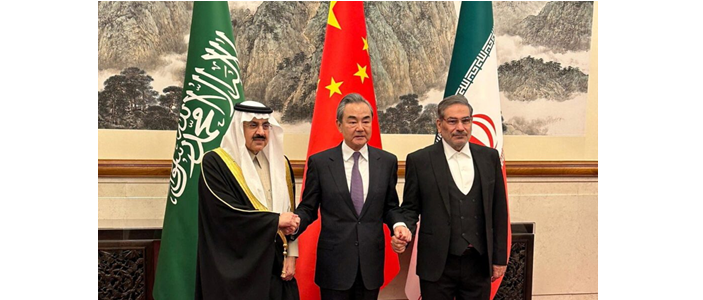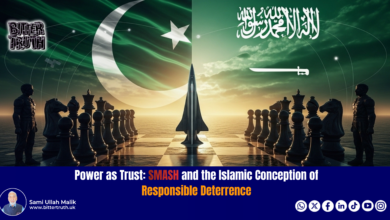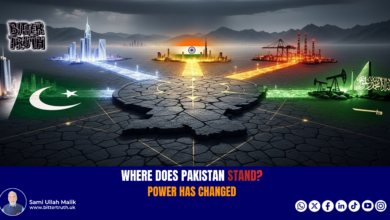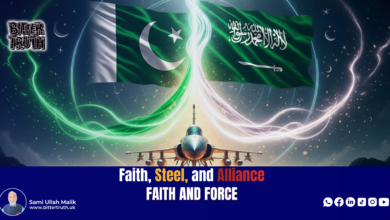Saudi Arabia’s New Strategy in the Middle East
Change in Saudi Arabia-Iran Relations
Since the 1979 Iranian Revolution, Saudi Arabia and its Sunni Arab neighbours have considered Iran a major regional threat. This concern was especially heightened after the 2019 drone attacks on Saudi oil facilities, which highlighted to the Gulf Arab states their vulnerability in the face of a potential Iranian assault. The protracted war in Yemen, with Saudi involvement, further exacerbated these fears. In this context, both countries were investing significant resources in a bitter rivalry, resulting in severe losses of life and escalating hostilities.
China’s intervention was instrumental in cooling tensions and preventing further damage. By encouraging dialogue between the adversaries, China not only poured water on the rising flames but also helped open avenues for negotiations, benefiting all regional players. This diplomatic move was a setback for the colonial powers that had long reaped benefits from the ongoing conflict.
Through Chinese mediation, Saudi Arabia and Iran agreed to resolve their differences, effectively ending a seven-year period of hostility that saw Saudi airstrikes against Iranian-backed Houthi rebels in Yemen. Recently, significant shifts have taken place in the region: Saudi Arabia’s Chief of Army Staff visited Tehran and held discussions with his Iranian counterpart. Both nations are now exploring ways to increase cooperation on defense and security.
While the Arab and Islamic summit calls for an end to the conflicts in Gaza and Lebanon, there is a sense of both hope and uncertainty about potential changes in the Middle East, particularly regarding Donald Trump’s possible second term as U.S. president. Amid the ongoing Israeli attacks on Gaza and Lebanon, the Saudi capital, Riyadh, is hosting a major conference of Muslim and Arab nations, even as high-level talks are occurring between Saudi and Iranian officials.
Recently, a high-ranking Saudi military delegation visited Iran, while Iranian President Masoud Pezeshkian held discussions with Saudi Crown Prince Mohammed bin Salman. According to Iranian media, the Saudi delegation exchanged views with Iranian military officials on bilateral military relations. Saudi Arabia’s Chief of General Staff, Lieutenant General Fayyadh bin Hamid Al-Ruwaili, met with Major General Mohammad Bagheri of Iran’s Armed Forces to discuss defense relations.
Iranian media has deemed this visit “extraordinary,” as it marks the first direct military engagement between the two nations since their last telephone exchanges in December 2023. Saudi Arabia’s Ministry of Defense shared details of the meeting on X (formerly Twitter), indicating that the discussions focused on military and defense cooperation. However, recent events underscore that the situation remains complex. For instance, a recent attack on a Saudi military camp in the Yemeni city of Sayun killed a Saudi officer and a soldier, signalling that foreign interests in the region could undermine peace efforts.
Iran supports Houthi rebels in Yemen, while the Saudi-backed coalition aligns with the Yemeni government. Following the camp attack, Saudi Arabia denounced the assault as “cowardly.”
Meanwhile, dozens of Arab and Muslim leaders have gathered in Riyadh, speculating about the implications of a potential second term for Donald Trump and what it would mean for the Middle East. Although Trump’s unpredictable style raises concerns in Europe, the Gulf Arab states regard him as a stabilizing leader. According to regional political analysts, security in the Middle East is paramount, and Trump’s strengthening of ties with U.S. allies in the region and focus on countering extremist forces represent the best path forward.
However, Saudi Arabia favours Trump over Joe Biden, possibly because Trump, uniquely in U.S. history, chose Riyadh over Canada or Mexico as his first foreign destination upon taking office in 2017. It is believed that this decision was influenced by Rupert Murdoch. Trump also maintains strong ties with Saudi leaders, including Crown Prince Mohammed bin Salman, partly due to his son-in-law Jared Kushner’s close relationship with them. MBS has never forgiven Biden for comments about holding Saudi Arabia accountable for human rights abuses, particularly in connection with the brutal murder of Saudi journalist Jamal Khashoggi in Turkey. There remains a mix of opinions on Trump’s legacy in the Middle East.
On one hand, Trump pleased Israel by recognizing Jerusalem as its capital and acknowledging Israeli sovereignty over the occupied Golan Heights. However, this move caused concern in the Arab world. Later, in 2020, Trump initiated the ‘Abraham Accords,’ under which the United Arab Emirates, Bahrain, and Morocco established full diplomatic relations with Israel, while Sudan also agreed to normalize relations. Yet, Trump maintained an aggressive stance toward Iran to win over the hearts of the Arab nations in the region.
In 2018, Trump withdrew the U.S. from the nuclear deal with Iran, calling it the “worst deal in history.” He echoed the views of many governments in the region. The deal aimed to limit Iran’s nuclear ambitions but failed to address its ballistic missile program, while the Iranian Revolutionary Guard became enriched, using this wealth to fund proxies in the region. In response, Trump ordered the 2020 killing of Qasem Soleimani, head of the IRGC’s Quds Force, which pleased Gulf Arab states but angered Iran.
Today’s Middle East is quite different from the region Trump left four years ago when he exited the White House. Israel is now at war with Hamas and Hezbollah, while also acting against the Houthis in Yemen and their backers in Iran. The Biden administration is viewed as less effective in curbing its close ally Israel amid conflicts in Gaza and Lebanon. It is believed that a return of Trump to the White House would give Israel more of a “free hand” to target facilities in Iran, such as oil and nuclear sites, which have been restrained under Biden’s administration.
Former Israeli intelligence officer Joshua Steinerch comments on Trump, saying that “he is Israel’s crucial ally in the region, openly supporting Israel and taking a firm stance against Iran’s destabilizing efforts. His return would likely mean more concrete measures to curb Iran’s influence.”
Following the arrival of a high-level Saudi delegation in Iran, Iranian President Masoud Pezeshkian contacted Saudi Crown Prince Mohammed bin Salman via telephone to discuss the Arab Islamic Conference. Leaders from Arab and Muslim countries have gathered in Riyadh, Saudi Arabia’s capital, to attend the conference. Representing Iran at the conference is Vice President Mohammad Reza Aref.
On Monday, during this meeting in Riyadh, Crown Prince Mohammed bin Salman strongly condemned Israel’s actions in Gaza, calling them “genocide,” and issued a warning against attacks on Iran. This strong stance marks a shift and indicates improved relations between Tehran and Riyadh. It is the first time Saudi officials have made such a strong statement since the onset of last year’s Gaza conflict. Addressing the summit of Arab and Islamic nations in Riyadh, the Crown Prince also condemned Israeli attacks on Lebanon and Iran. The conference’s primary aim is to curb Israeli aggression in Palestinian and Lebanese areas, ensure civilian protection, and pressure the international community to support peace and stability in the region.
Once seen as rivals, Iran and Saudi Arabia have been moving closer since last year. China mediated an improvement in their relations, which had been strained since 2016, when Iranian protesters attacked Saudi diplomatic missions in Tehran and Mashhad. In early October, Iranian Foreign Minister Abbas Araqchi visited Riyadh and met with the Crown Prince, leading to a gradual improvement in ties. The two nations conducted joint military exercises last October. The Saudi Ministry of Defense stated that Saudi Arabia conducted naval drills in the Arabian Sea with several countries, including Iran.
Meanwhile, Iran’s news agency ISNA reported that Iran’s military was conducting joint exercises in the northern Indian Ocean with Russia and Oman, joined by six other countries, including Saudi Arabia.
Iranian military commander Admiral Shahram Irani mentioned that Saudi Arabia had requested joint exercises in the Red Sea, though no specific dates were provided. The visit of Saudi Arabia’s high-level military delegation to Iran came at a time when Israel made a new claim. Israel announced the formation of a regional alliance led by the U.S. in the Red Sea, involving Israel, Jordan, Egypt, and Saudi Arabia. According to Israel, this military cooperation in the Red Sea aims to protect maritime transport, oil, gas, and strategic assets from Iranian threats. The Israeli news website “Zman Yisrael” reported that this “regional defense alliance” is being formed to counter threats posed by Iran and its allies in Iraq and Yemen.
It is also a fact that over the past decade, with the rise of Mohammed bin Salman in Saudi Arabia, relations between Riyadh and Tehran have started to shift. Despite Saudi Arabia’s historically close relationship with the United States, the Crown Prince has emerged as a significant regional figure who has approached the issue of Iran with considerable determination. Although Iranian and Saudi relations have drawn closer within the last two years, partly due to Chinese mediation, this rapprochement has not emerged from any alliance, as neither Tehran nor Riyadh has shifted its fundamental foreign policy stance.
Traditionally, Saudi Arabia has been one of the United States’ most prominent allies in the Middle East, adhering closely to American interests and demands within its foreign policy. Meanwhile, the regional rivalry between Saudi Arabia and Iran has a lengthy history, one that extends well beyond the inception of the Islamic Republic of Iran.
Amid Israel’s ongoing military advances in Lebanon and the continuous loss of Palestinian lives in Gaza, there appears to be no imminent prospect of a ceasefire in this conflict. At this moment, the U.S. presidential election has been won by an individual who is a staunch supporter of Israel and has pledged a firm agreement with Iran. Many experts speculate that Donald Trump’s return to the White House could lead to further tension in the Middle East. Should these predictions materialize, numerous countries in the region—especially allies of the U.S. like Saudi Arabia—may face a challenging decision: to either support Iran or remain neutral amid rising military tensions.
However, in the current climate, where anger towards Israel has reached its peak across the Muslim world, nations such as Saudi Arabia, Egypt, Jordan, and the United Arab Emirates may pay a steep price for their “neutrality” toward both Iran and Israel. Crown Prince Mohammed bin Salman, in his recent address, has made it clear that he has no desire to be seen as a mere puppet of the U.S. and Israel. This stance not only strengthens his position within the region but also could significantly enhance Saudi Arabia’s role in shaping power-based relationships across the Middle East.
Rather than remaining silent or disregarding the escalating tension between Iran and Israel, Saudi Arabia has now openly sided against Israel and leaned in support of Iran. In carefully chosen words, Mohammed bin Salman addressed the “international community,” with the Western world effectively as his primary audience. This move is part of a broader campaign to redefine Saudi Arabia’s image and position on the global stage, an initiative that began several years ago.
This speech indicates that bin Salman no longer seeks proximity to Israel or the U.S. to counterbalance Iran. Instead, he is now apprehensive about Israel’s increasing strength, an expansion that continues and, if unchecked, may eventually grant Israel dominance over the region. In response, there are indeed concerted efforts underway to forge an effective alliance, with regional countries aligning to devise a comprehensive and robust strategy that could pre-emptively address such future threats. This united response is deemed essential to turn back the tide of instability facing the region.
On the contrary, this time they are worried about the increase in Israel’s power: a similar process is also underway and if there is no major change in it, it could increase Israel’s dominance in the region. To prevent this, efforts are certainly underway to form an effective alliance, for which all the countries of the region have certainly come together to bring forward a comprehensive and concrete response in the field to avoid possible future threats that cannot turn back this storm.






